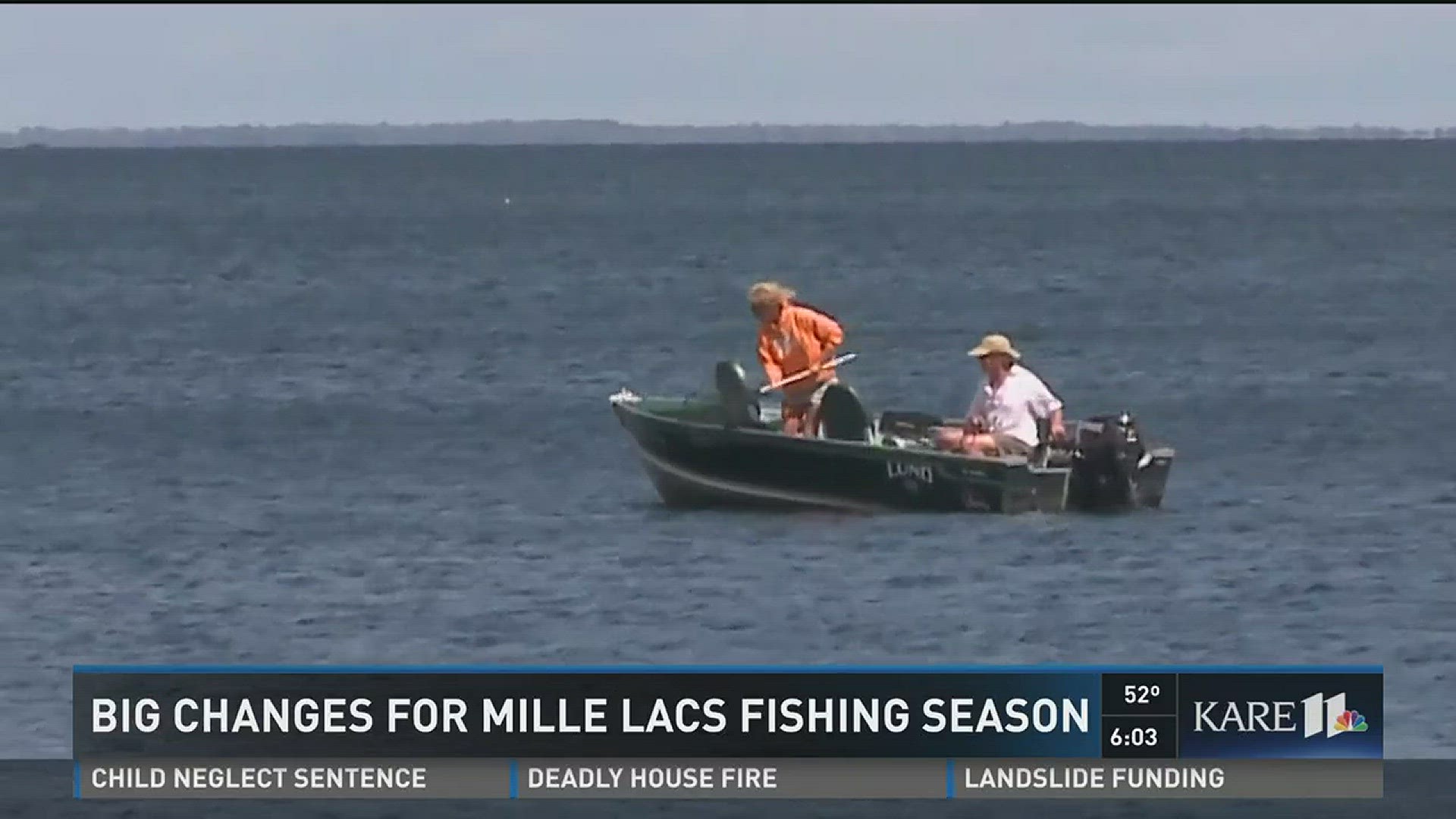ST. PAUL, Minn. - In a historic move the Minnesota Department of Natural Resources (DNR) has called for a strict catch-and-release fishing season on Lake Mille Lacs.
In addition, and for the first time ever, the 2016 regulations call for anglers to use artificial bait only when fishing for walleye.
DNR officials say the move is necessary to protect fish needed to rebuild the lake's walleye population. The only other real option was completely shutting down the lake for walleye fishing for the entire 2016 season.
"A catch-and-release walleye season allows us to protect future spawners yet acknowledges the desire that fishing remain open," said Don Pereira, fisheries chief for the Minnesota DNR. "Not allowing harvest is a difficult decision but it provides our best option."
From Saturday, May 14 until Thursday, Dec. 1, anglers must use artificial bait and immediately release any walleye caught. Those fishing for Northern pike and muskellunge can use sucker minnows longer than eight inches, but all other anglers cannot have any other bait that is live, dead or frozen.
Bill Eno owns Twin Pines Resort and sits on the Mille Lacs Advisory Committee.
"To keep the lake open for walleye fishing, throughout the summer...the price would be the restrictions that we have. Do we wish it was different? Sure. But we did the best we could and to offer opportunities for people to still come up to the lake," he said.
The artificial bait strategy was enacted because fish caught on artificial bait have a far lower mortality rate than walleye caught with live bait.
Last year on Mille Lacs, walleye anglers were allowed to use live bait and keep one walleye (19-21 inches long or longer than 28 inches). However, walleye fishing closed in August when the number of fish caught put the state over its 28,600-pound limit.
Ice fishing reopened on Dec. 1 with a one-walleye limit to encourage business for local resorts and guides.
DNR officials said during a conference call that the historic measures are the only option to keep the lake open for walleye fishermen.
"I see things getting better from now. I think last year when we closed the fishery, I think that was the lowest point. Hopefully we're now starting to go forward and i think this 2013 class is going to be very, very positive and we can start on our climb back up to where we use to be," Eno said.

